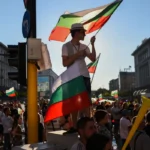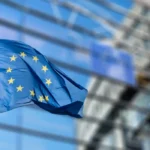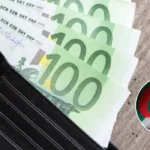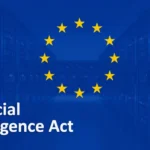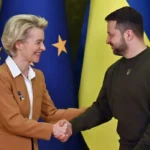While negotiations are going well between Israel and Hamas, Qatar is at the center of the diplomatic game to achieve a ceasefire. In charge, Sheikh Mohammad ben Abdulrahman ben Jassem al-Thani, Prime Minister and Minister of Foreign Affairs. On the internet, there is little open source information regarding this political figure. We will try to paint a portrait of it.
The war in Gaza has brought Qatar’s useful intermediary role back to the forefront. It should be remembered that this emirate has always had the flexibility to “talk” with Hamas and the United States (Qatar is home to Al Udeid, the largest American base in the Middle East).
Likewise, the Prime Minister of Qatar was the first Arab official to explicitly condemn the October 7 attacks, hence the explicit confidence of the Israelis too. Currently, Qatar faces the challenge of brokering a ceasefire between Israel and Hamas, serving as the main interlocutor between the two sides for more than a decade.
The driving force of high diplomacy
But who is the driving force behind these negotiations? Sheikh Momammad bin Abdulrahman bin Jassem al-Thani, Qatari Prime Minister but also Minister of Foreign Affairs since 2016, is used to crisis situations.
Jean-Sébastien Guillaume, expert and consultant in economic and strategic intelligence and founder of the Celtic Intelligence firm, explains: “In 2019-2020, (Sheikh Momammad) was dubbed by the Americans to carry out negotiations in Afghanistan. For context, We must remember that during the time of President Obama and the difficulties with the Iranians, the United States preferred to play the Saudi card. But, when Donald Trump decided to withdraw from Afghanistan, the CIA began to discuss with Sheikh Mohammad. ” In September 2020, it was in Doha that the United States and the Taliban negotiated the American withdrawal from Afghanistan.
In September 2023, Qatar played a crucial role in the release of five American hostages in Iran. He acted as a financial intermediary facilitating the transfer of frozen Iranian money to Korea. At the beginning of October of the same year, the country was at the center of negotiations for the release of Ukrainian prisoners in Russia.
“But it is also Cheikh Mohammad who is changing the situation with regard to his country’s financing of certain small groups in northern Syria and Iraq,” declares Jean-Sébastien Guillaume to Ici Beirut. “He is a strong personality who wants to get Qatar out of this problematic perception of financing terrorism vis-à-vis the West,” he says.
However, one of the essential elements of the stable and steady rise of Sheikh Mohammad is the blockade imposed in 2017 by Saudi Arabia, followed by the United Arab Emirates, Bahrain and Egypt and which will last until 2020.
“This is where Sheikh Mohammad distinguished himself by shaping the emergence of true Qatari nationalism,” Karim Sader, political scientist and consultant, specialist in Gulf countries, told Ici Beirut. “On a reassessment of the relations that Qatar had established with Turkey and Iran, which happens to be one of the thirteen conditions imposed on Qatar to end the blockade, Sheikh Mohammad did not give in on anything and did not bend In doing so, the ‘small’ emirate saw itself grow nationalist wings. The Minister of Foreign Affairs therefore became the architect of the creation of this feeling of national pride around a leader (Sheikh Tamim, emir of Qatar),” continues Mr. Sader.
The regional situation and the policies of Sheikh Mohammad
According to Karim Sader, after the embargo, Sheikh Mohammad committed to lowering his ambitions while emerging victorious from this standoff. “There are three parameters which have allowed Qatar to return to the forefront: first, the MBS/MBZ tandem is cracking and Sheikh Mohammad is subtly playing on these divisions by reconciling with both. Then, due to the war in Ukraine, Qatar regains a primordial role in energy terms thanks to its liquefied natural gas (LNG) which has become the coveted alternative to Russian gas. And finally, the war in Gaza which brings back to the forefront the scene the useful role of intermediary of the emirate.”
“Since the conflict, the United Arab Emirates (UAE) and Saudi Arabia have been in a delicate position. The UAE does not want to highlight the Abraham Accords that had been signed with Israel, while Saudi Arabia “was preparing to do so. The only actor that was able to afford to maintain contact with all parties happened to be Qatar, with Sheikh Mohammad at the head of its diplomacy,” continues Mr. Sader.
“Taking advantage” of the blockade, Sheikh Mohammad succeeded in making his country more independent from the Gulf countries. He strengthened economic and political ties with Turkey. Out of necessity, it also forged closer trade ties with Iran, as the latter’s airspace had transformed into a crucial corridor for access to the rest of the world. It also quickly developed new supply routes and expanded its seaport of Hamad. Although entailing significant short-term economic costs for Qatar, this has boosted the country’s economic diversification.
Internal policy and strengthening
The Prime Minister of Qatar was appointed to the position by the current Emir, Sheikh Tamim bin Hamad al-Thani, and the Al-Thani Family Council. Until now Deputy Prime Minister, Minister of Foreign Affairs and head of the Sovereign Fund, Sheikh Mohammad is part of Sheikh Tamim’s close guard, Mr. Guillaume tells us.
His predecessor, Sheikh Hamad bin Jassem bin Jaber al-Thani (HBJ), was a man of all power who formed a political and economic trio with the former emir, Sheikh Hamad, as well as with the latter’s wife, Sheikha Moza. HBJ was the last representative of the old guard, and still had influence in the diwan, “but with the appointment of Sheikh Mohammad as Prime Minister, a page is truly turned in the influence of the Emir father “, according to Karim Sader.
Currently, Emir Tamim and his Prime Minister are of the same generation and both have strong personalities. They want to make Qatar what Tamim’s father already wanted to do, namely a state through which everything passes at the diplomatic and economic level.
According to Mr. Guillaume, Qatar is a small country which relies mainly on its gas resources and on clan structures. If it wants to survive, it is obliged to have a strong parallel diplomacy, a real “soft power”, and to develop with the post-gas era in mind. Thanks to the Football World Cup in 2022, as well as a strategy focused on sport, the two leaders have tried to strengthen the country’s status internationally. In addition, industrial and cultural diplomacy, the opening of universities and Qatari investments abroad have also contributed to this ambition.
“France received Sheikh Tamim with great fanfare in February 2024 and the emirate plays its role as intermediary in exchange for important and strategic investments abroad,” recalls Mr. Sader.
Although from the ruling family, Sheikh Mohammad is less prone to power struggles; he keeps a low profile and does not overshadow the emir – unlike his predecessor. He is a reformer. Its finesse makes it an effective lever for high diplomacy.
This article is originally published on icibeyrouth.com

